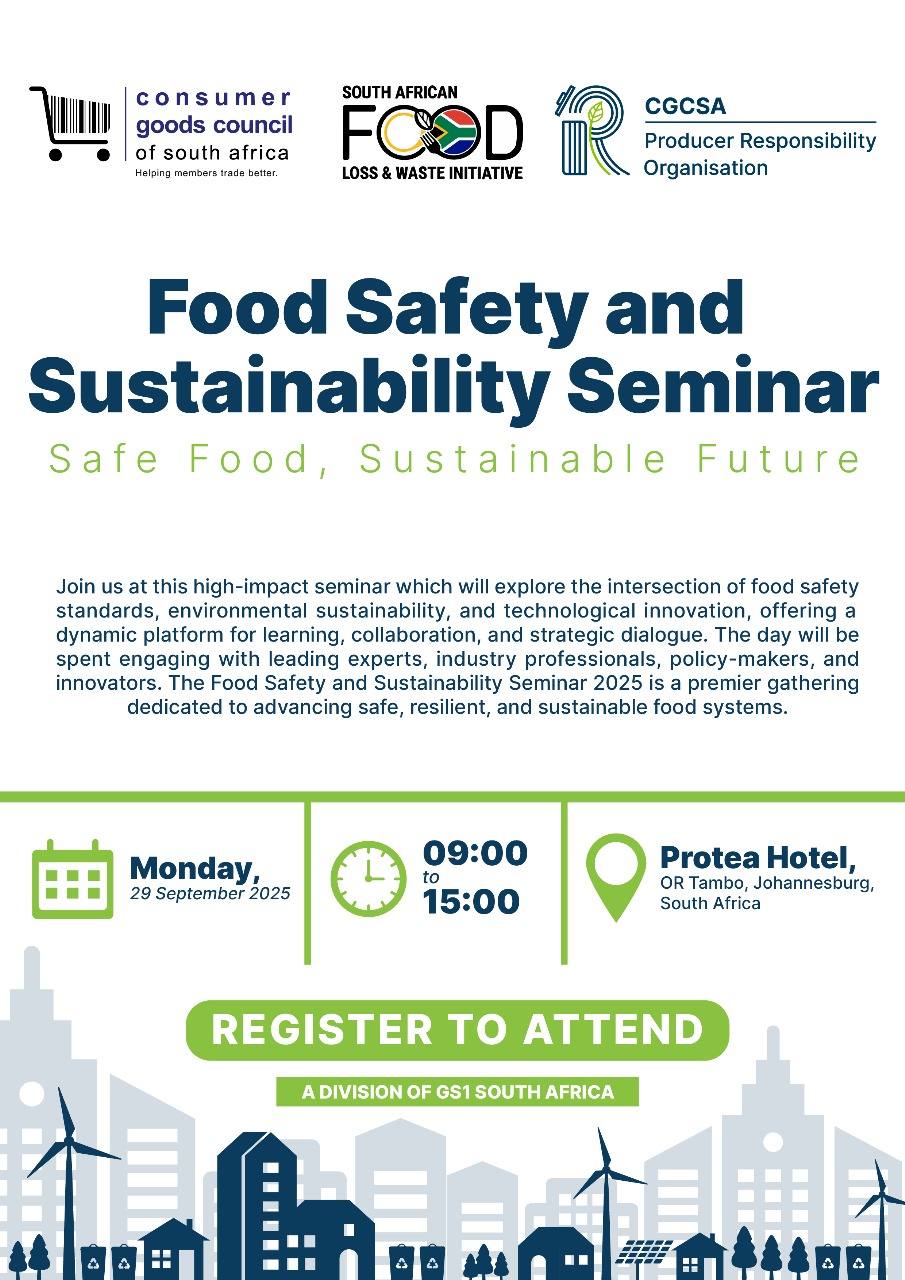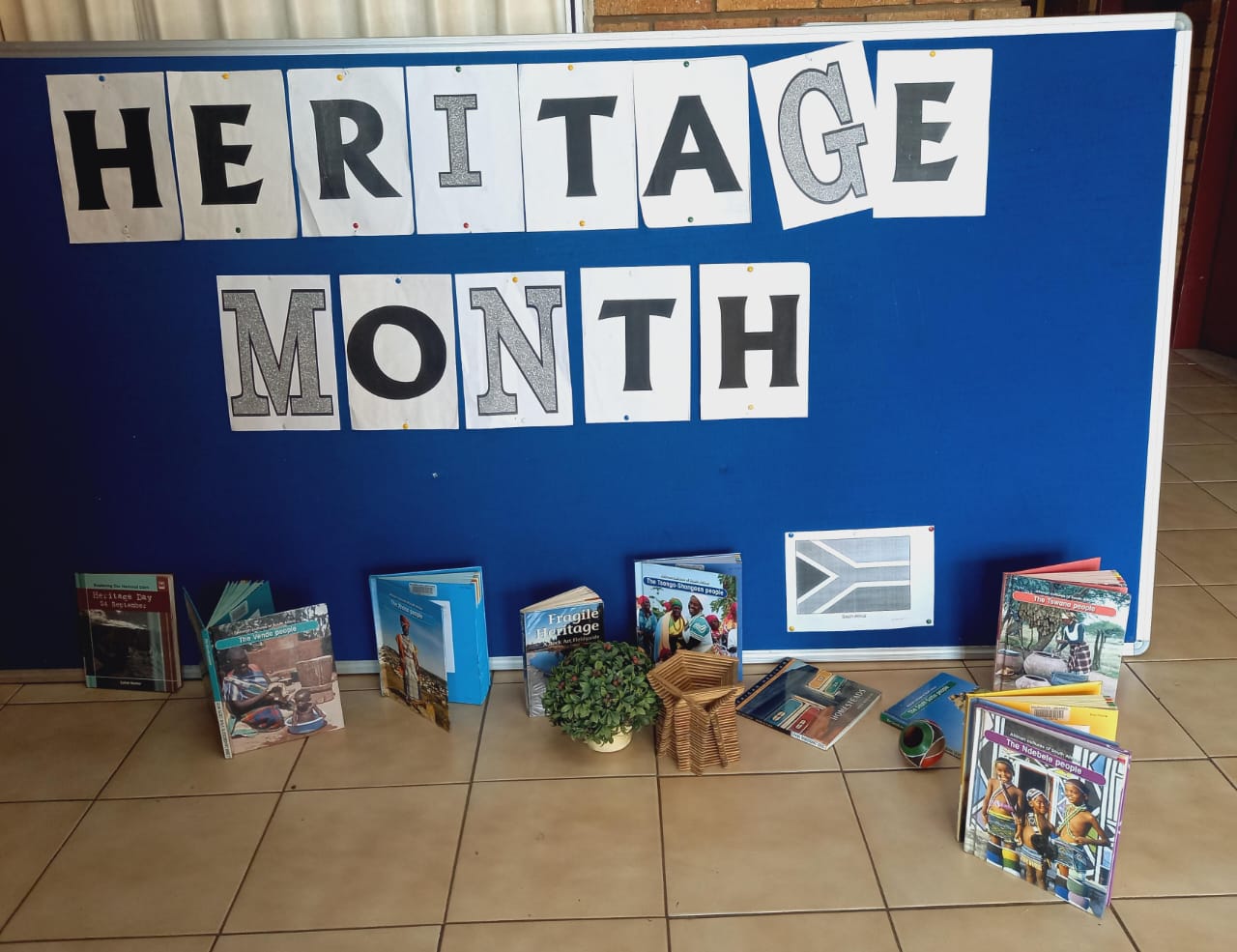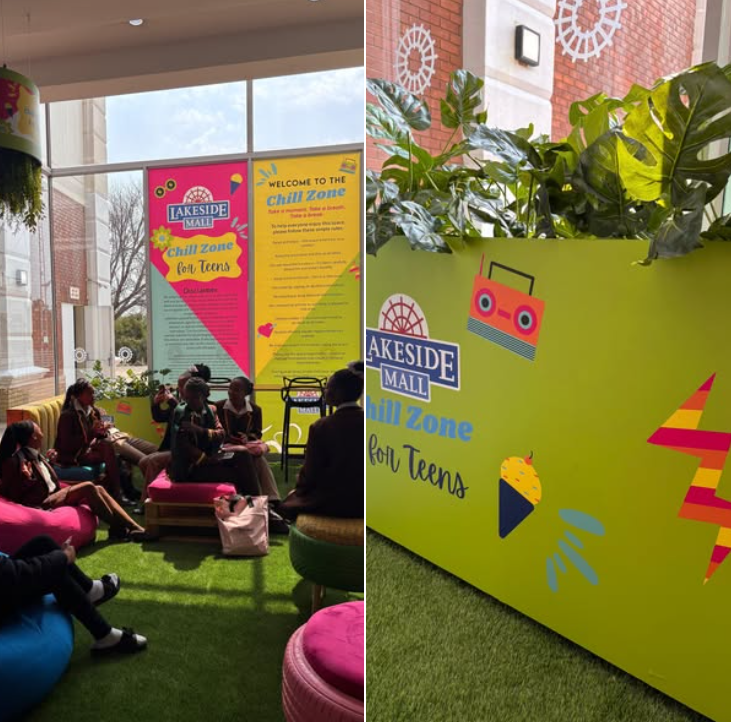By Matlou Setati: Executive: Food Safety & Sustainability Initiative, Consumer Goods Council of South Africa
Food is at the heart of South African life. It brings families together around pap and stew, unites friends at a braai, and celebrates the country’s diversity and heritage. Yet this same food culture is under threat. South Africa is wasting and discards over 10 million of tonnes of food annually while millions face hunger and food insecurity. It is against this backdrop that the country is turning the spotlight on one of its most urgent challenges: food waste.
This paradox demands urgent, collective action. To confront this crisis the Consumer Goods Council of South Africa (CGCSA) in partnership with the Waste & Resources Action Programme (WRAP) will host a landmark Food Safety and Sustainability Seminar on 29 September 2025 at Protea Hotel, OR Tambo, coinciding with, the United Nations’ International Day of Awareness of Food Loss and Waste. The gathering will bring together government officials, academics, businesses and civil society to reflect on the scale of the crisis and the opportunities for action.
The food crisis numbers are staggering. The numbers are staggering. According to the Mbalo Brief, the official Statistics South Africa digest drawing on the 2022 Census results released in 2023, the country produces approximately 31 million tonnes of food annually and wastes nearly a third of it. The financial loss is about R60 to R61.5 billion annually, roughly 2% of South Africa’s GDP. At the same time, the Census revealed a troubling rise in food insecurity, with nearly one in five households reporting hunger. This is the painful paradox: while food is wasted, people are going without.
The waste in South Africa is not confined to one point, it occurs across the entire supply chain, from farm to for. On farms, inadequate storage, limited cold chain infrastructure, and poor road conditions mean crops often spoil before they reach the market.
During manufacturing, food is lost in processing due to inaccurate demand forecasting and rigid quality specifications, resulting in unnecessary discards. At Retail products are removed from shelves once they pass a certain date, despite being perfectly edible. In households, poor meal planning and leftovers left too long in the fridge contribute significantly to the problem. Research s hows one in five fruits and vegetables, still fit for consumption, never make it to the plate. This silent loss is not just a waste of food, it’s a waste of the water, energy, labour, and resources that went into producing it.
The environmental costs are just as dire. Once dumped, food rots and releases methane, a gas even more harmful than carbon dioxide. Added to this is the waste of water, fertiliser, electricity and labour that went into producing the food in the first place.
But there are reasons for hope. The CGCSA’s South African Food Loss and Waste Initiative (SA FLWI), now in its fifth year, has brought together 135 food businesses from farm to retail, as well as solution providers to prevent and reduce food loss and waste across the food supply chain .Food business signatories are donating surplus foods to solution provider signatory organisations such as SA Harvest, Nosh Food Rescue and SA Harvest, in line with the Initiative’s Food Donation Best Practice Guidelines, resulting in millions of meals being provided to those in need every year. At the same time, food businesses are measuring food loss and waste in their operations and taking action to prevent and reduce this waste from occurring in the first place.
The seminar of 29 September 2025 will shine a brighter light on what has been achieved so far and what the plans are for the future. Speakers include Gauteng Agriculture MEC Vuyiswa Ramokgopa, GS1 South Africa’s CEO, Zinhle Tyikwe, Nestlé Executive Nicole Roos, and food safety expert Professor Lise Korsten of the University of Pretoria. This will highlight the progress of the South African Food Loss and Waste Initiative.
The event will also remind South Africans that this is not just an industry issue, it is everyone’s responsibility. Stats SA’s findings show that households contribute a significant share of waste. That means small daily changes at home can have a major impact. Planning meals before shopping, storing food correctly, understanding date labels, eating leftovers, are practical steps that make a difference.
Globally, the United Nations has called on all countries to halve food waste by 2030. For South Africa, achieving this goal would mean millions fewer going hungry, reduced greenhouse emissions, stronger resilience to climate shocks, and billions of rands saved.
The message is simple and urgent. Food has always been a symbol of togetherness in South Africa. To protect that tradition, we need to treat every meal as precious. Stop wasting, start saving – because every morsel matters.









